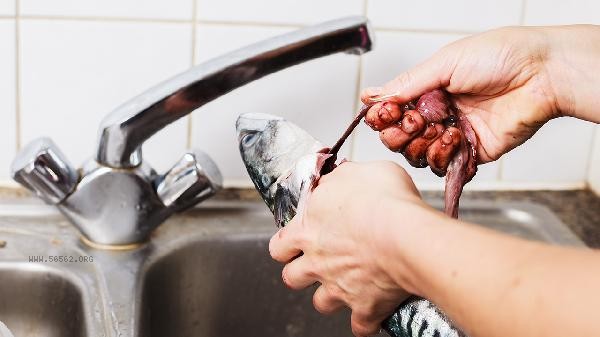The danger of swallowing fish bones depends on the size, location, and individual reaction of the bones. In most cases, they are dissolved by stomach acid or naturally excreted, but may pose risks such as esophageal perforation and gastric mucosal damage.

1. Small spine treatment: Fine and soft fish spines less than 1 centimeter in length can usually be softened and decomposed by stomach acid. It is recommended to stop eating immediately. Swallowing solid foods such as Mantou may aggravate the injury. The correct way is to take vitamin C tablets to promote the softening of thorns, or drink a small amount of vinegar to assist in dissolution. If there is no discomfort after 24 hours of observation, it can be temporarily left untreated.
2. Risk of large spines: Hard fish spines larger than 2 centimeters are prone to getting stuck in narrow areas of the esophagus. The three physiological narrow parts of the esophagus are most prone to impaction, which may cause severe pain and vomiting of blood behind the sternum. Emergency gastroscopy is required for removal, and delaying may lead to mediastinal infection. Children and the elderly are at higher risk due to weaker esophageal muscles.

3. Symptom recognition: If there is a persistent sensation of foreign body in the throat for more than 6 hours, be alert. When accompanied by swallowing pain, increased salivation, or fever, it may have caused tearing of the esophageal mucosa. Sudden severe abdominal pain after lying flat at night suggests the possibility of gastric perforation and requires immediate CT imaging to locate the foreign body.
4. Medical intervention: Gastroscopy is the gold standard and can simultaneously treat over 90% of digestive tract fish bones. Use foreign body forceps, mesh baskets, or transparent caps to assist in removal under general anesthesia. Deep impaction requires surgical procedures, such as open gastric wall incision or thoracoscopy. After surgery, fasting for 24 hours and intravenous infusion of proton pump inhibitors are required.
5. Prevention of complications: Avoid inducing vomiting or severe coughing after ingestion. It is recommended to consume honey to protect the mucous membranes and rinse the esophagus with 200ml of warm water every 2 hours. High risk individuals such as denture wearers should use a filter to pick fish when eating, and children are advised to choose less spiky species such as cod.

Proper treatment of fish bones stuck in the throat can reduce the probability of complications by 90%. Families can prepare electronic laryngoscopes for self-examination, choose steaming cooking method to soften fish bones, and stay focused and avoid joking during meals. When suspected symptoms appear, emergency gastroscopy services are available at night in the ear, nose, and throat departments of tertiary hospitals. Delaying treatment may lead to simple problems developing into serious situations that require open chest surgery.









Comments (0)
Leave a Comment
No comments yet
Be the first to share your thoughts!